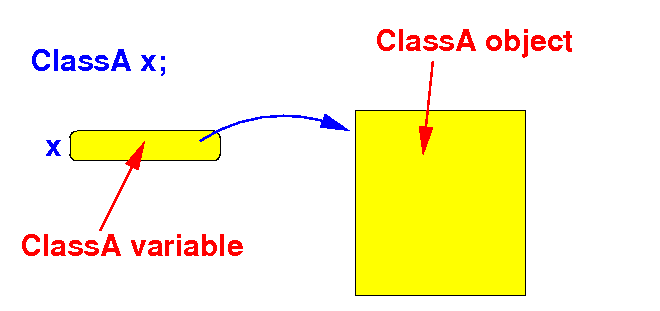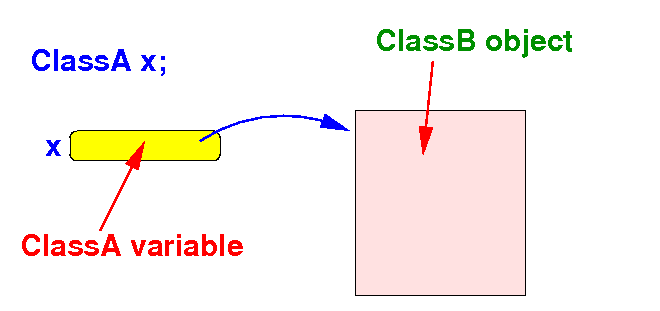|
|
|
Suppose a SomeClass variable a is referencing to some arbitrary object:
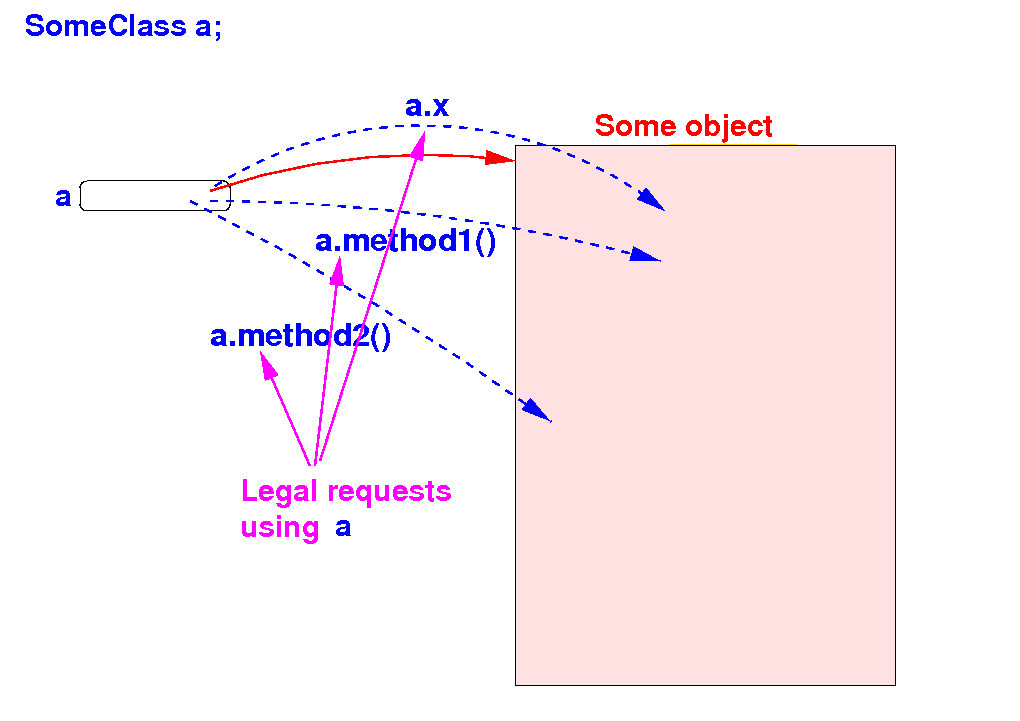
We can make these legal member access requests: (1) a.x (2) a.method1() (3) a.method2()
Rule: a reference variable must reference to an object that contains all members in a legal request
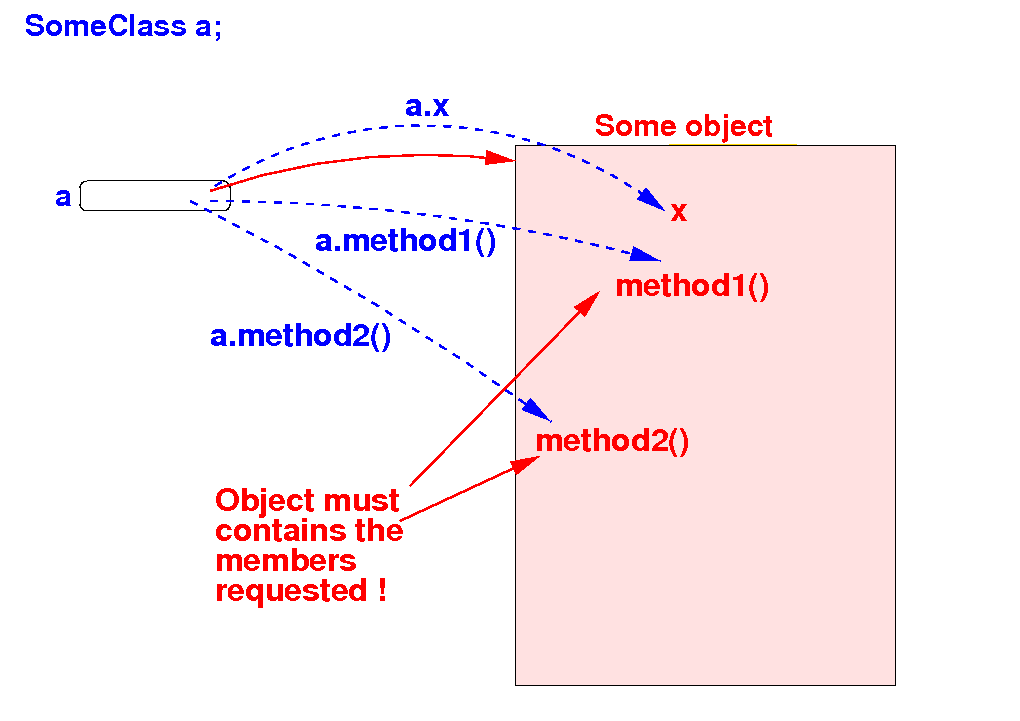
Reason: the referenced object must perform all actions in the class or else we can have an request error !
The simplest way to satisfy the rule is to reference to an object of the same class:
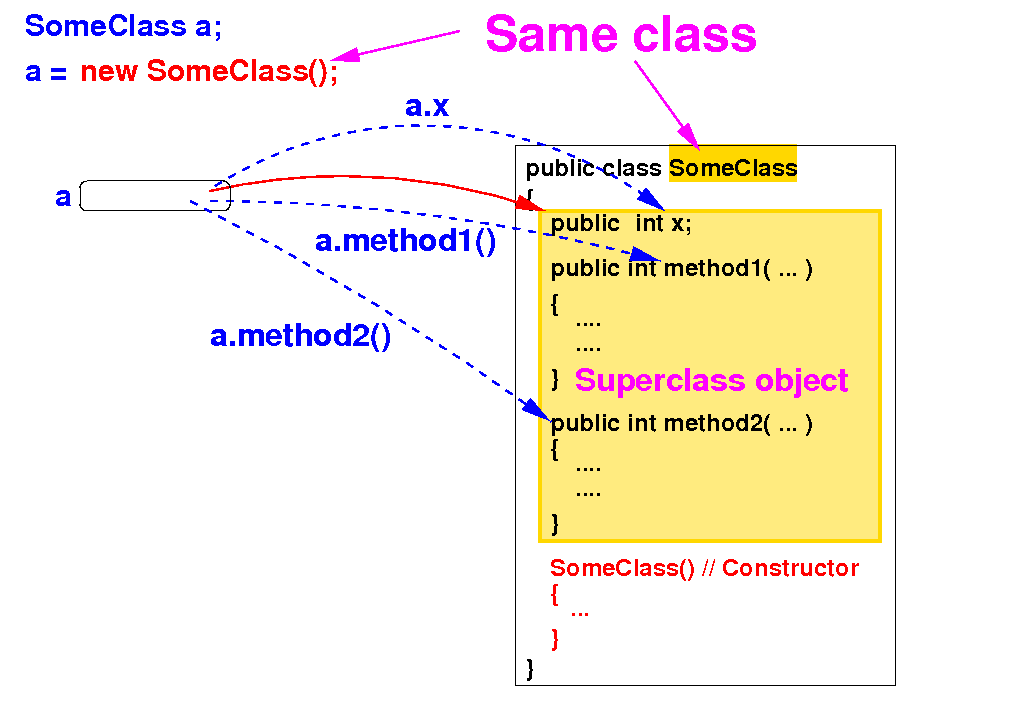
However: there is another safe (= correct) way due to the inheritance relationship !!
A subclass inherits all the normal members (excluding constructors) from its superclass:
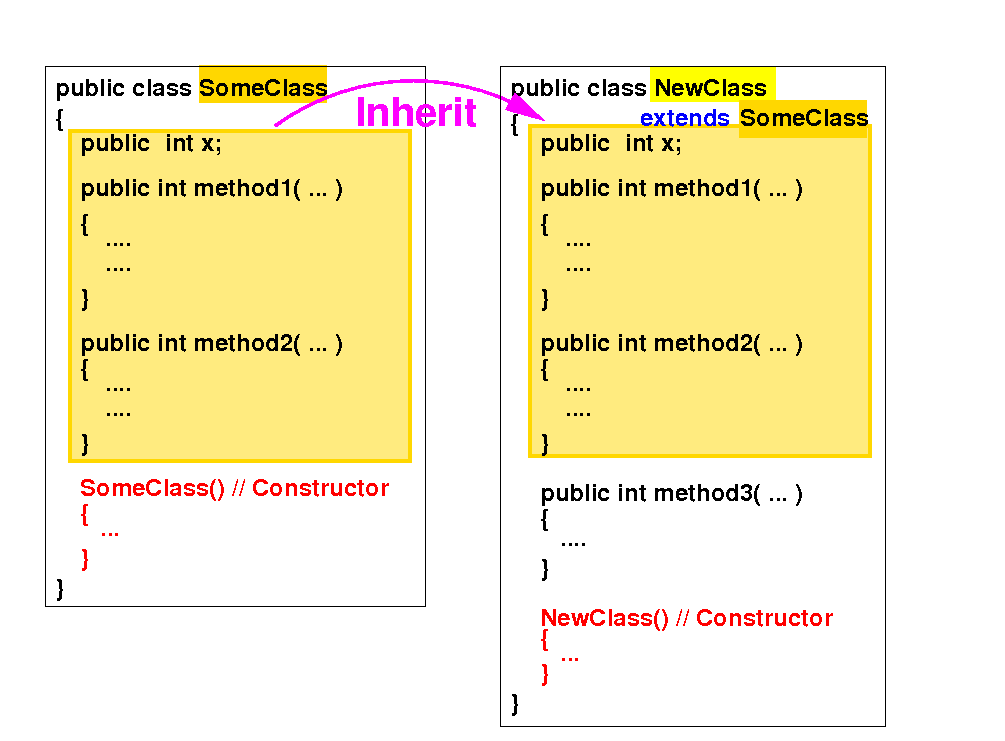
A subclass object contains all normal members found in a superclass object:
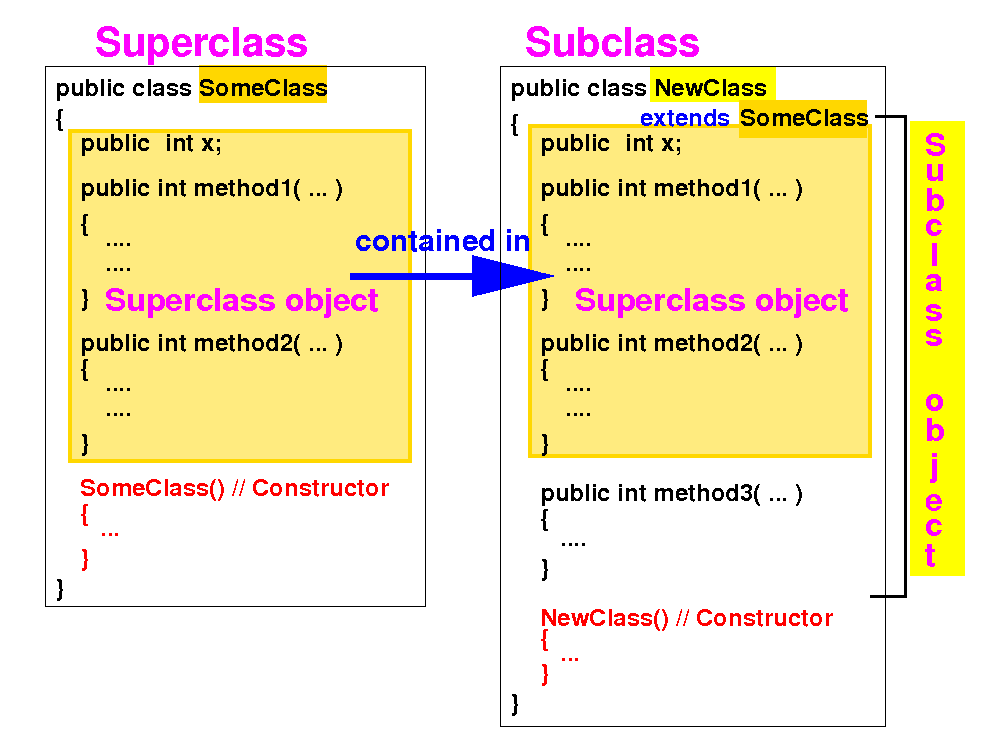
A subclass object contains all normal members even when we override some methods:
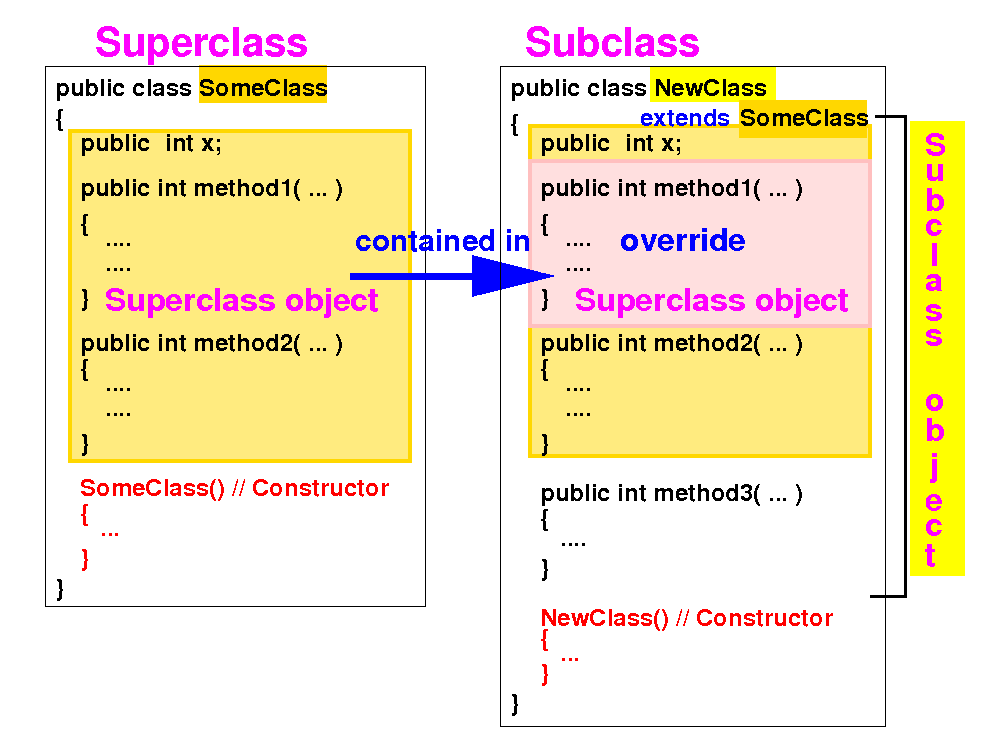
An instance variable a of the type SomeClass can be used to access the (public) members in SomeClass:
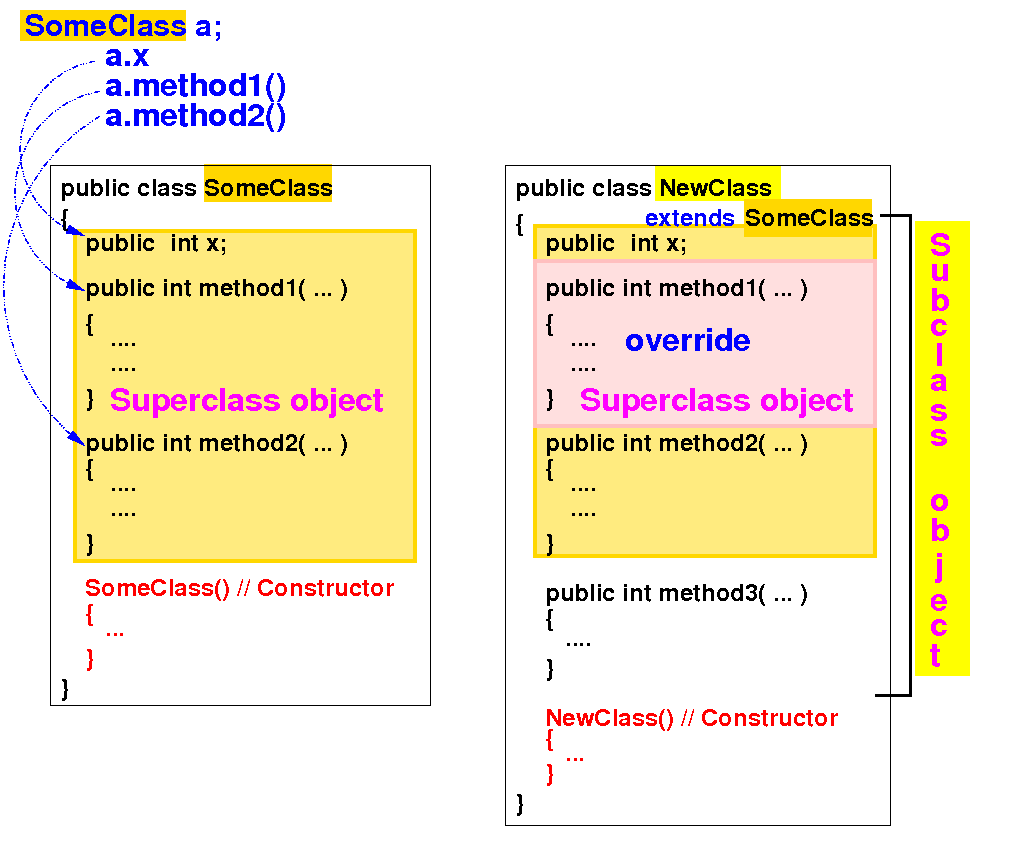
An instance variable a of the type NewClass can be used to access the (public) members in NewClass :
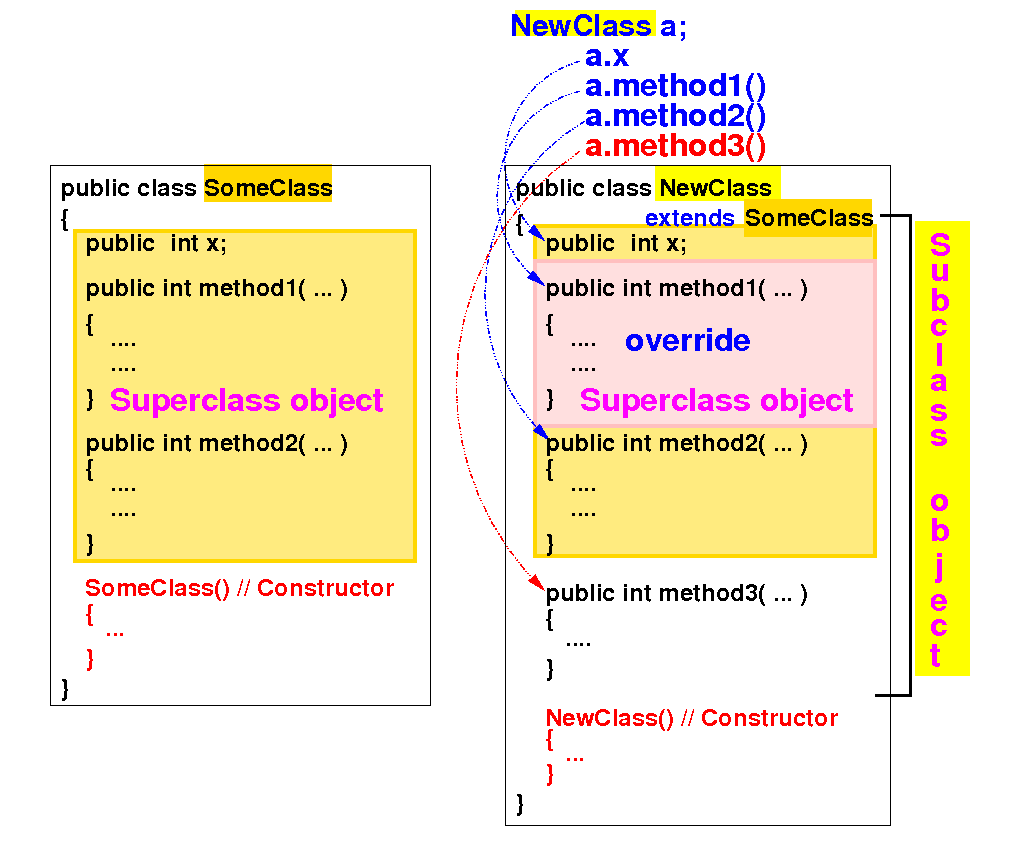
Notice that: a subclass object can perform all actions that a superclass object performs:
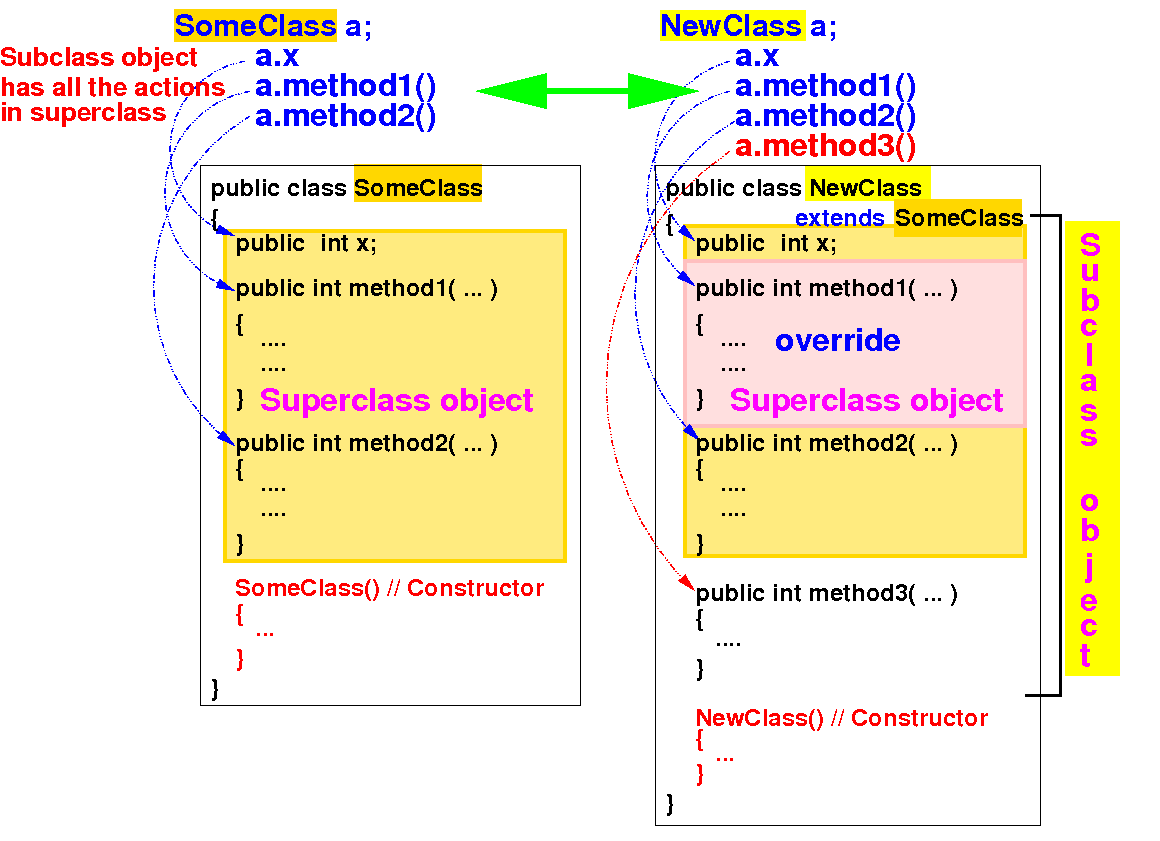
Therefore, it is safe to use a superclass reference variable to request members in a subclass object:
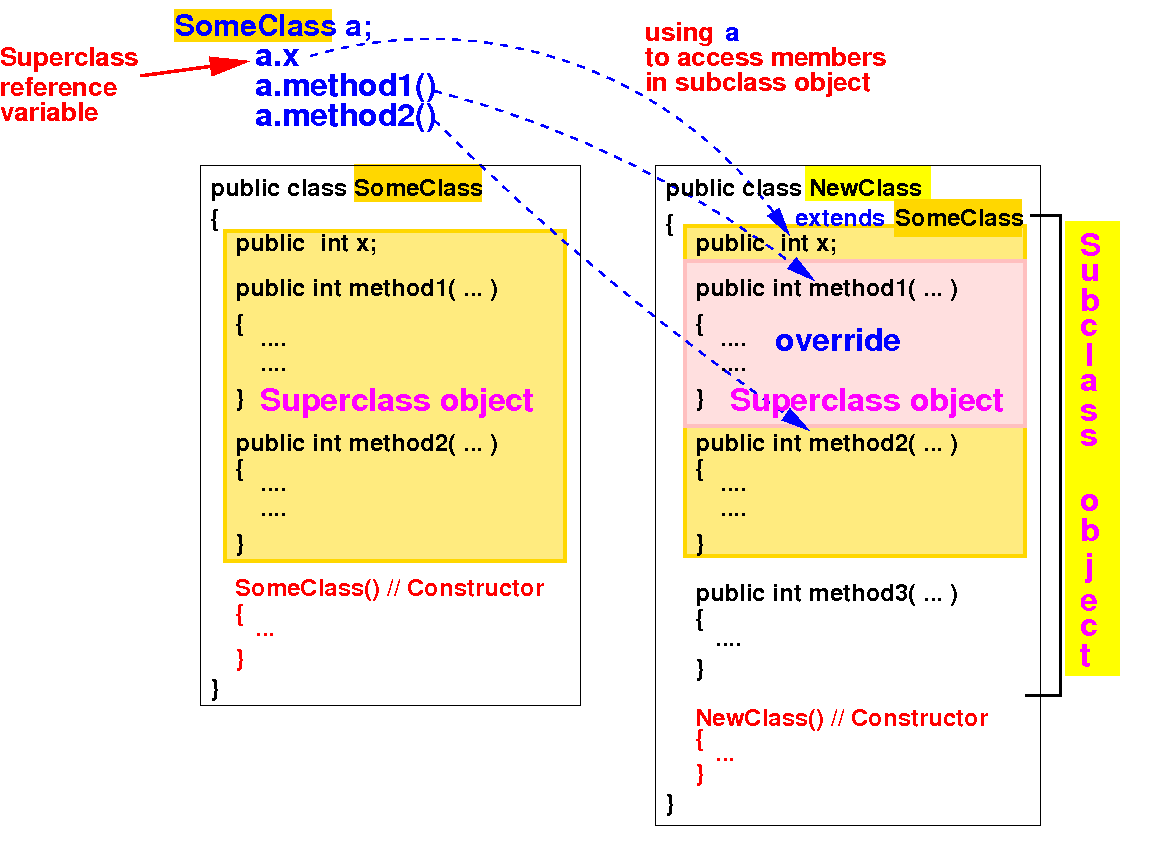
Java does allow you to access members in a subclass object using a superclass reference variable !
public class myProg
{
public static void main(String[] args)
{
SomeClass a; // Defines a reference variable of
// type SomeClass
// Allowable actions:
// a.x
// a.method1();
// a.method2();
a = new NewClass(); // Make a reference to a NewClass object
// Legal, because the NewClass object
// can perform all actions
// required by the SomeClass type
}
}
|
DEMO: demo/04-inheritance/18-casting/Demo4.java
Furthermore: the request a.method() will execute the method in the object that a is currently pointing to:
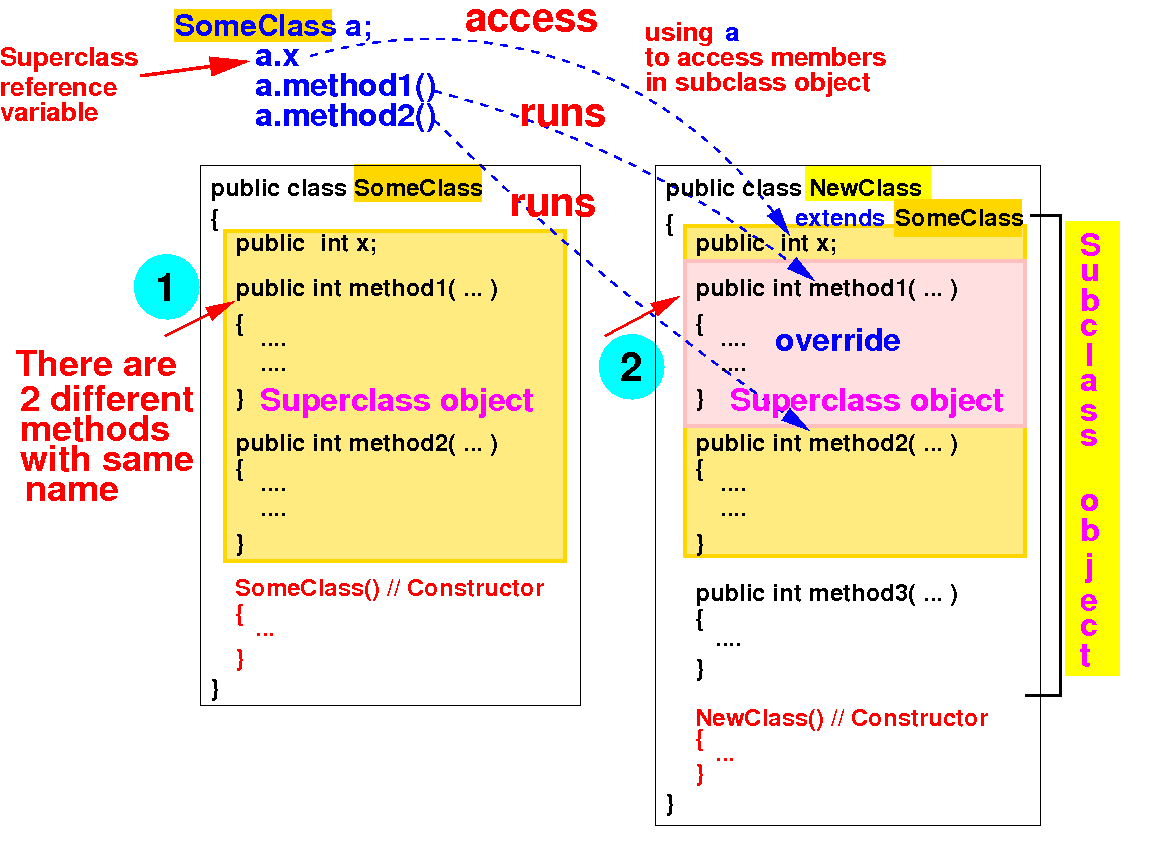
This feature is called "dynamic dispatch" or late binding (decision on which method to run is at the last moment)
public class myProg
{
public static void main(String[] args)
{
// New way to access member in NewClass
SomeClass a = new NewClass(); // Allowed !
System.out.println(a.x);
a.method1(); // exec NewClass' method1()
a.method2();
// a.method3(); // This is illegal !
}
}
|
public class NewClass extends SomeClass
{
public void method1() // Override
{
System.out.println("**NewClass.m1()");
}
public void method3()
{
System.out.println("**NewClass.m3()");
}
}
|
public class SomeClass
{
public int x = 44;
public void method1()
{
System.out.println("SomeClass.m1()");
}
public void method2()
{
System.out.println("SomeClass.m2()");
}
}
|
DEMO: demo/04-inheritance/18-casting/Demo.java
Because a is pointing to a NewClass object, a.method1() will execute NewClass' method1() eventhough a is a SomeClass variable
|
DEMO: demo/04-inheritance/18-casting/Demo2.java
Notice: a subclass object may perform fewer actions that a subclass object can perform:
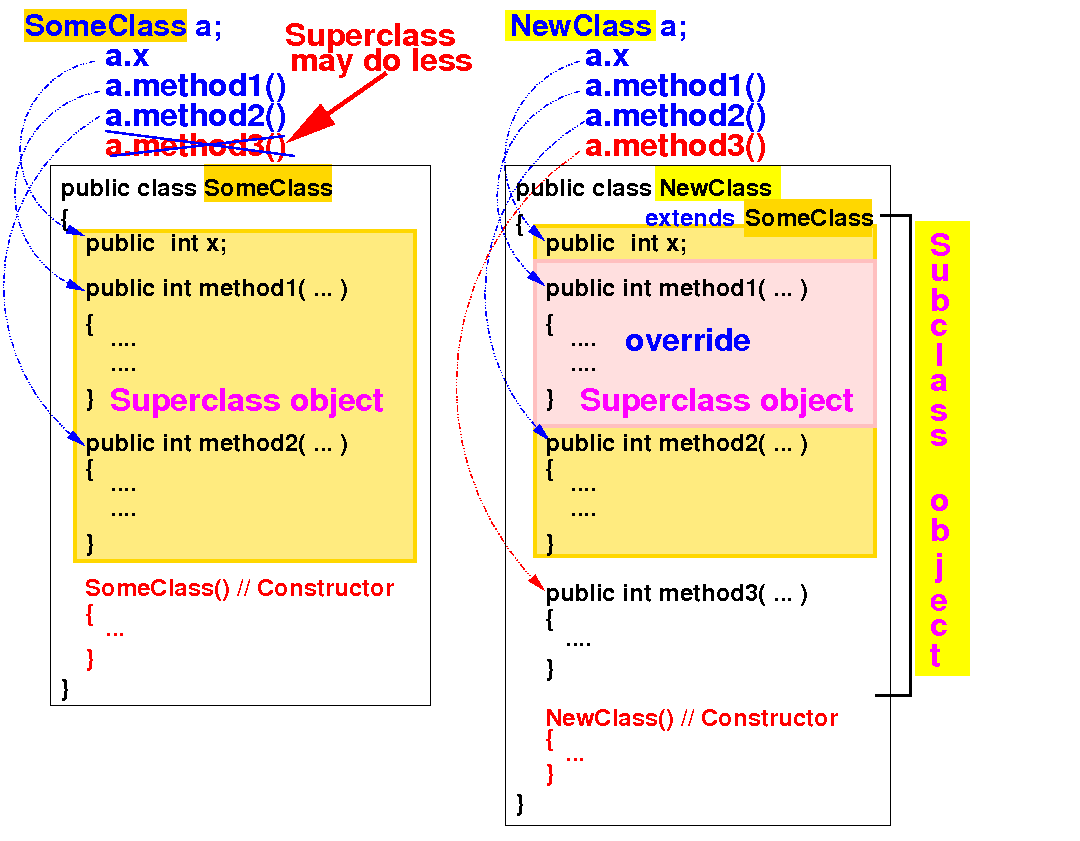
Therefore, it is illegal to use a subclass reference variable to access members in a superclass object:
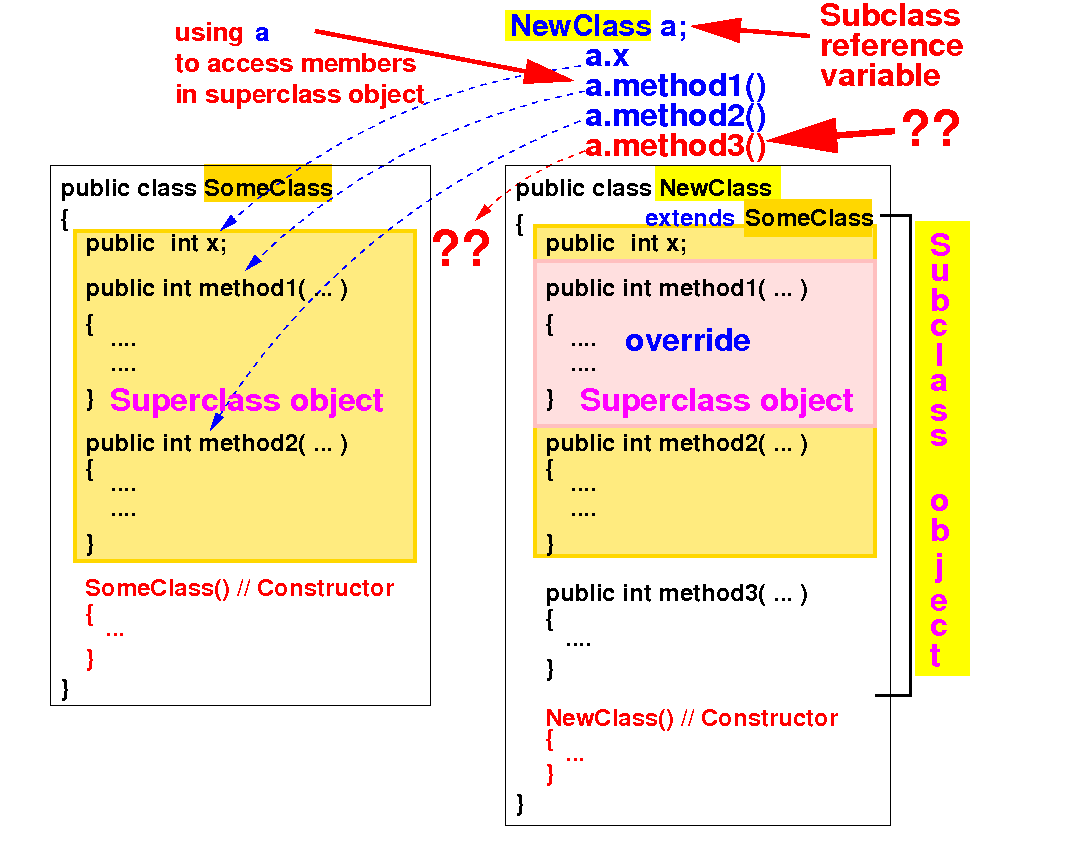
E.g.: the action a.method3() is illegal because there is no method3() defined inside a SomeClass object
public class myProg
{
public static void main(String[] args)
{
NewClass a; // Defines a reference variable of
// type NewClass
// Allowable actions:
// a.x
// a.method1();
// a.method2();
// a.method3();
a = new SomeClass(); // Make a reference to a SomeClass object
// Illegal, because the SomeClass object
// cannot perform:
// a.method3();
}
}
|
DEMO: demo/04-inheritance/18-casting/Demo3.java
